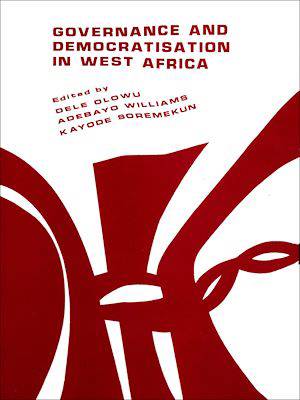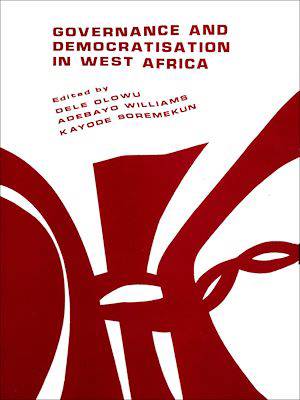
- Afhalen na 1 uur in een winkel met voorraad
- In januari gratis thuislevering in België
- Ruim aanbod met 7 miljoen producten
- Afhalen na 1 uur in een winkel met voorraad
- In januari gratis thuislevering in België
- Ruim aanbod met 7 miljoen producten
Governance and democratisation in West Africa E-BOOK
Dele Olowu, Adebayo Williams, Kayode SoremekunOmschrijving
Democracy is said to have failed in Africa, four decades into independence few of the nations on the continent can boast a credible democratic government. But the writers in this book put the question differently : What is democracy in Africa? What happens to political ideas when they emigrate to other continents? Is the current crisis on the continent a failing of democracy or of the nation-state itself? Yet the picture is more complex than the broad political canvas and the turbulent history of the region suggest. As military and civil governments replace and usurp one another relentlessly, there are deeper shifts taking place throughout the region. The vast network of inter-linking social processes - civil society, the media, and academia, public concern with accountability and transparency, which form the bedrock of true democracy - are strengthening. Meanwhile, the region's international representatives, as Adebayo Williams makes clear, are now the writers and artists living in exile and calling for informed international intervention. There is a process underway, and the authors of this book have a word for it : « democratization ». This book does not aim to signal to the world that everything's fine in West Africa, but rather to interrogate the adaptability of the concept of democracy, and to examine coldly the legitimacy of the modem nation. Law, literature, international relations and local government are examined in a powerful critique which illustrates the determination of the modem African academic to act as watchdog, critic and influence on the political processes at home. The true sign of emerging democracy in Africa is less an election in Monrovia than the publication of a book such as this.
Specificaties
Betrokkenen
- Auteur(s):
- Uitgeverij:
Inhoud
- Aantal bladzijden:
- 402
- Taal:
- Engels
Eigenschappen
- Productcode (EAN):
- 9782869789777
- Verschijningsdatum:
- 31/12/2019
- Uitvoering:
- E-book
- Beveiligd met:
- Digital watermarking
- Formaat:
- ePub

Alleen bij Standaard Boekhandel
Beoordelingen
We publiceren alleen reviews die voldoen aan de voorwaarden voor reviews. Bekijk onze voorwaarden voor reviews.









